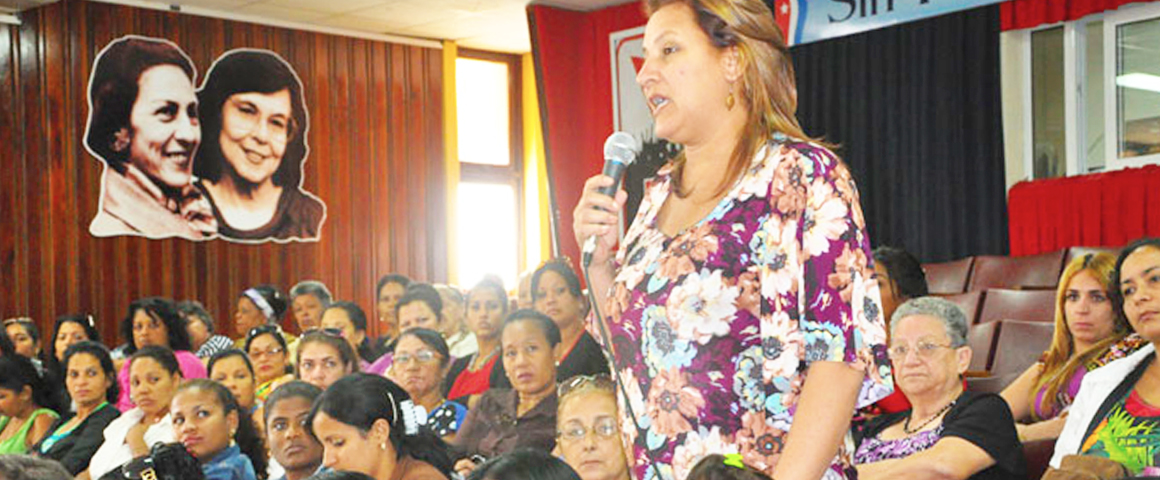The “Family” and its role has often been an argued and contested topic within Marx and Engels discussions of capitalist exploitation and it is still debated currently. In their lifetime the only legitimate family in capitalist societies was considered to be the “nuclear family” meaning a man, a woman and their legitimate children, as male-dominated religions still preach from their capitalist viewpoint.
Engels called for the socialization of the family, because capitalism has especially oppressed women who work outside the home. The smashing of both capitalism and patriarchy is fundamental to Marxism and socialist feminism. Revolutionaries envision the creation of a society dedicated to full human development, where empowerment, emergence into the social world, liberty and equality must exist for all.
Marx said “the division of labour is nothing but the alienated form of human activity” which he further noted becomes privatized to control women and the working-class all-round development of individuals. And Marx believed that the abolishing the sexual division of labour in production, could abolish alienation for women and the notion of women being private property.
Cuba is an example of great advances for women in a revolutionary society which has done its best to end the social alienation of women as reproducers and as producers by socialization. Women have been at the centre of the Cuban revolution from the beginning, and are making amazing advances toward creating a society which is based on justice and equality.
Dr. Marta Nunez, a Cuban sociologist who has devoted decades of research on gender relations and the role of women, tells us that due to nearly 60 years of universal education and health, coupled with national policies supporting women’s rights and advancements, the results are supportive of Cuba’s approach, such as “almost 60% of all professionals in Cuba are women and women’s representation in government is steadily rising. At the parliamentary level after the last elections, 53.2% of Cuban parliamentarians are women.” This certainly makes Canada’s parliament make-up of only 28% women look paltry.
Nunez adds that the clinical research team responsible for developing a biotech therapy for non-small cell lung cancer was headed by a woman; a lead scientist of the Cuban team that developed the world’s first effective meningitis B vaccine is a woman; and the cofounder of the country’s clinical trials coordinating center and registry is a woman, as is the founder of the National Center for Agricultural Animal Health. Thus, we see how important the opportunity is for women in the productive sector to achieve true gender parity which can release the full potential of women.*
How did these women become enabled to achieve so much for their society? It was not an accident by any means. From the beginning of the Revolution in Cuba, women were in the forefront making their needs and demands known. From the Mariana Grajales Women’s Platoon in the revolutionary war to the involvement of the women in the FMC (Federation of Cuban Women) and on to women’s involvement in the CDR’s (neighbourhood committees of the Civil Defense of the Revolution), Cuba is achieving true gender parity which releases the full potential of women.
How did these women move beyond the work of the family and reproductive duties? From the beginning of the new revolutionary government, women were invited to play essential roles in society, taking on the duties of heading up new health and education brigades to assist women in all areas of Cuba to have safe, healthy pregnancies and deliveries. Cuba also developed its own safe low estrogen contraceptive pills for women and vasectomies for men; child care centres which offered education and superior care for the children of working parents from the age of 45 days (after parental leave) to the age of five. Both parental and community involvement in supporting their care and education was established. More and larger laundry facilities were established so that work became more socialized. Shopping for food and household goods became much easier for workers just coming out of their work places, with such innovations as “Plan Jaba” which makes shopping better and more efficient as the workers drop off their shopping lists at the rationing stations and return at the end of the day to have bags filled with their orders to take home. These are but a few of the innovations to make parenting and care-giving more social, and integrating all women into a revolutionary society.
The original 1975 Cuban Family Code was an important document, written into law after consultations and input from the FMC, trade unions, farmers groups and the citizenry at large. It covered basic equality in the family home, such as children’s rights in relation to their parents, paternity requiring absent fathers to financially contribute to their children’s welfare, responsibilities between partners, whether formally married or not, to name a few.
But these issues arose out of the idea that such marriages or unions were based on heterosexual partnerships alone. Currently the Cuban Family Code is being discussed in parliament to include same-sex relationships and President Miguel Diaz-Canel has supported these changes. These changes have been championed and organized by Mariela Castro, a vocal defender of LGBT rights who heads the Cuban National Centre for Sex Education.
The proposed change will replace the 1975 Family Code, once a popular consultation is concluded and the draft has been approved in a national referendum. These changes would make yet another revolutionary first for a nation which undoubtedly supports women. We salute Cuban women, particularly at IWD celebrations, and point to the difference a socialist society can make in the world.
*For the full article by Dr. Nunez, see “http://mediacreview.org/empowering-cuban-women-marta-nunez-ms-phd-sociologist-consulting-professor-university-of-havana.”




